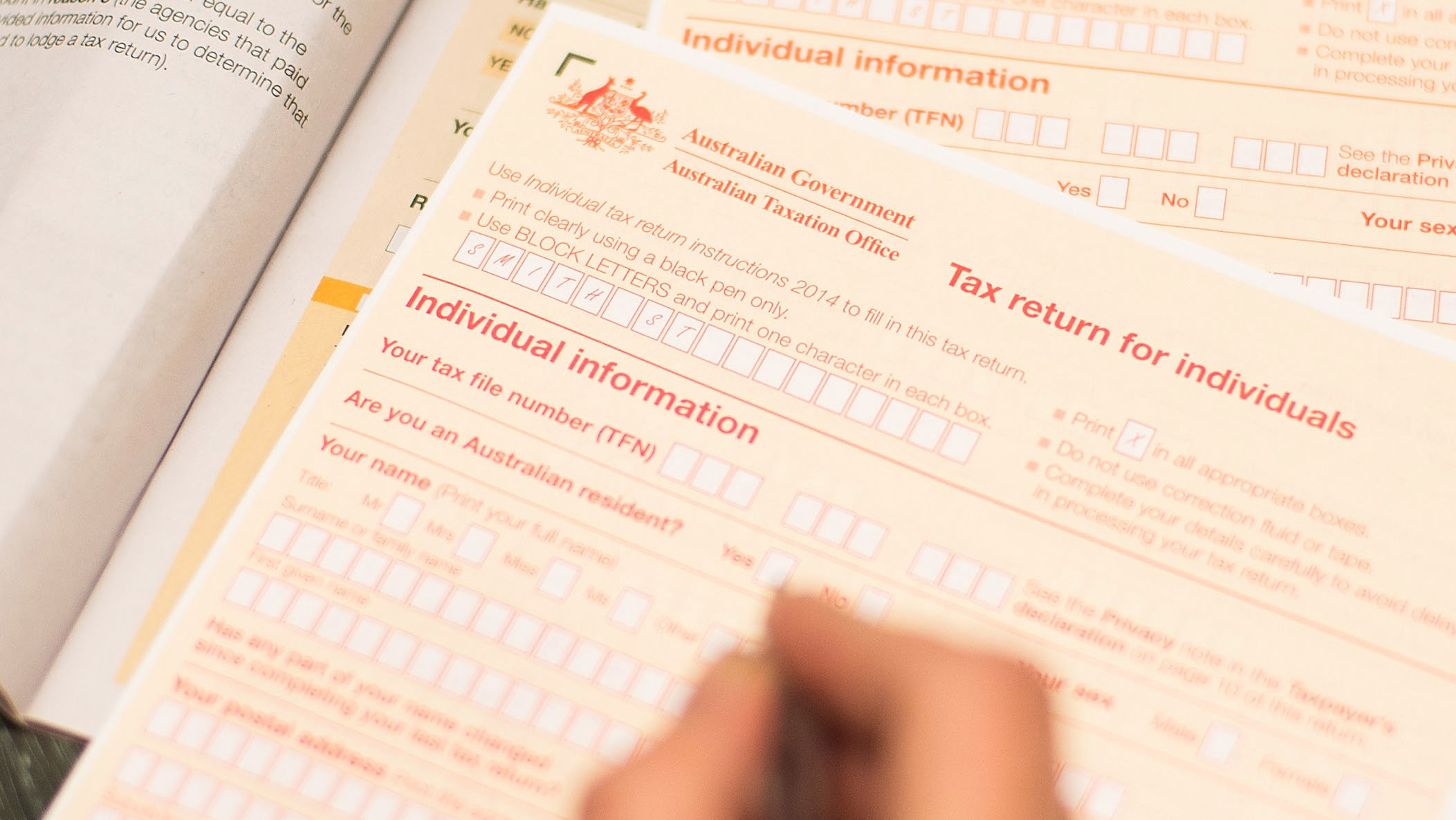Usings an Income Tax Return: Unlocking Potential Financial Savings and Making Certain a Larger Tax Refund
The tax return functions as a necessary tool for people looking for to maximize their monetary results, providing countless avenues for possible cost savings and enhanced refunds. By leveraging credit histories and reductions, taxpayers can purposefully lower their gross income and improve their general monetary standing. However, the complexities of tax obligation laws and the ever-evolving landscape of tax legislation necessitate a thorough understanding of readily available alternatives. What are the key methods that can be employed to ensure that taxpayers profit from these benefits? The answer might disclose greater than just monetary gains.
Understanding Tax Reductions
Lots of taxpayers may locate themselves bewildered by the intricacies of tax obligation reductions, yet comprehending these important components is vital for making best use of prospective cost savings. Tax deductions lower taxed earnings, therefore reducing the general tax obligation liability for organizations and people. Acquainting oneself with the numerous kinds of reductions available can considerably improve one's capability to optimize tax returns.
Deductions can be classified into itemized and standard deductions. The standard reduction supplies a set reduction in taxed income, while itemized reductions allow taxpayers to specify specific expenditures, such as home loan interest, state tax obligations, and philanthropic contributions. Taxpayers need to analyze which option produces the best benefit, as choosing the suitable deduction method can lead to considerable cost savings.
Moreover, it is very important to maintain exact documents of deductible expenses throughout the tax year. This technique not just helps with the prep work of tax obligation returns however also guarantees compliance with internal revenue service requirements. Taxpayers need to also remain educated concerning changes in tax legislations that might affect qualified deductions, as these can vary each year. By successfully passing through the landscape of tax reductions, people can expose the potential for a more positive tax end result and safe and secure greater financial advantages.
Exploring Tax Obligation Credit Reports
Tax obligation credits represent an additional significant method for taxpayers to decrease their overall tax obligation, complementing the advantages got from deductions. Unlike reductions, which lower gross income, tax debts give a dollar-for-dollar decrease of the actual tax obligation owed. This difference makes tax credit ratings specifically important for people looking for to optimize their financial savings.
There are two major kinds of tax credit scores: nonrefundable and refundable. Nonrefundable credit reports can lower your tax responsibility to absolutely no yet not below that quantity, while refundable credit ratings can lead to a refund if the credit reports exceed the tax obligation owed. Examples of generally claimed tax debts consist of the Earned Earnings Tax Obligation Credit Score (EITC), the Youngster Tax Credit, and education-related credit ratings like the American Possibility Credit Score.
Eligibility requirements for these credit scores can differ substantially, commonly based on income, submitting standing, and details scenarios. Taxpayers should extensively assess the standards connected with each credit report to establish they claim all benefits for which they certify. By strategically utilizing offered tax obligation credits, individuals can boost their tax returns, eventually leading to significant savings and potentially larger refunds.

Investing Your Reimbursement Wisely
Getting a Tax reimbursement can seem like a financial windfall, however exactly how that cash is utilized can greatly impact lasting financial wellness. Instead of viewing your refund as disposable earnings, consider it an opportunity to purchase your future.


One reliable option is adding to a Private Retired Life Account (IRA) This can boost your retirement savings while potentially producing tax obligation benefits. Conversely, buying a varied supply portfolio can provide considerable growth capacity with time, permitting your reimbursement to benefit you on the market.
In addition, think about utilizing your refund to pay down high-interest go to my site debt, such as bank card equilibriums. Reducing financial obligation can enhance your monetary standing and alleviate tension, inevitably enabling you to allot even more funds toward investments in the future.
For those concentrated on education and learning, using your reimbursement for a 529 college financial savings plan can help secure a brighter future on your own or your children.
Preparation for Future Expenses
Very carefully preparing for future expenditures is essential for preserving economic stability and achieving long-lasting goals. A well-structured monetary plan allows individuals to assign resources properly, making certain that upcoming costs do not interrupt their economic health. Income tax return can supply an important structure for this preparation procedure.
Making use of the refund as a springboard, individuals can determine and focus on considerable future expenditures, such as home repair work, education and learning prices, or healthcare requirements. Establishing a budget plan that integrates these anticipated expenses allows a positive method, reducing the chance of financial strain when the time involves resolve them.
Moreover, reserving funds from your tax obligation refund right into devoted interest-bearing accounts can boost the effectiveness of your preparation. Australian Tax return online. Consider developing an emergency fund especially for unforeseen expenses, making sure that you are prepared for unforeseen scenarios without thwarting your financial objectives
Common Blunders to Stay Clear Of
Lots of people make vital mistakes when handling their income tax return that can weaken their monetary planning efforts. One typical mistake is failing to keep accurate documents. Inadequate paperwork can lead to missed out on deductions, leading to a reduced refund or greater tax responsibility. It is important to maintain arranged documents of all revenue, expenses, and tax-related papers throughout the year.
One more frequent blunder is ignoring to examine tax legislation modifications. Tax policies can advance yearly, and lack of knowledge of these modifications might lead to missed out on opportunities for tax credit scores or reductions. Additionally, lots of taxpayers neglect eligible deductions, such as those for clinical expenditures or academic costs.

Filing taxes prematurely or far too late can likewise be detrimental. Early filers may lose out on final tax obligation breaks, while late filers take the chance of fines and passion.
Additionally, not seeking professional support when required can result in costly mistakes. Tax obligation specialists can give useful insights, guaranteeing compliance and optimizing prospective financial savings.
Lastly, hurrying with the return can bring about basic arithmetic blunders or ignored forms. Taking the time to verify all entrances is essential for an effective tax return outcome.
Final Thought
To sum up, the calculated usage of income tax return functions as an essential mechanism for optimizing financial benefits. By thoroughly recognizing and using credit reports and deductions, individuals can significantly lower taxable revenue and enhance reimbursement quantities. Furthermore, sensible financial investment of reimbursements and effective planning for future costs add to lasting economic stability. Awareness of typical mistakes can also streamline the tax process, eventually encouraging taxpayers to leverage their returns for a more more helpful hints protected monetary future.
Tax obligation credit scores represent one more significant avenue for taxpayers to minimize their overall tax obligation liability, matching the advantages got from reductions. Unlike reductions, which lower taxable earnings, tax credits provide a dollar-for-dollar reduction of the actual tax obligation owed. Nonrefundable debts can lower your tax obligation responsibility to absolutely no however not below that quantity, while refundable credit scores can result in a reimbursement if the debts exceed the tax obligation owed. Examples of frequently declared tax credit scores consist of the Earned Earnings Tax Credit Score (EITC), the Child Tax Obligation Credit history, and education-related credit scores like the American Possibility Credit Score.
Tax obligation policies can advance each year, and lack of knowledge of these changes might result in missed opportunities for why not try these out tax credit reports or deductions. - Australian Tax return online